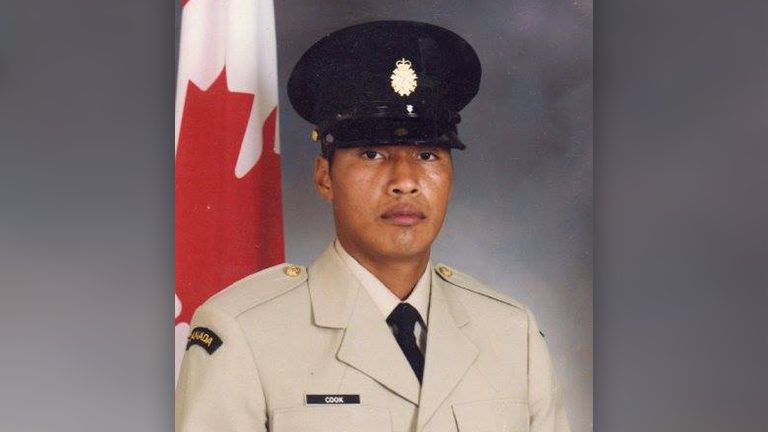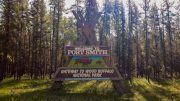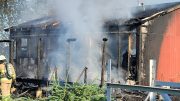Tim Cook remembers the way his mother looked at him in his army uniform.
The feeling of pride and national identity veiled over him like a warm blanket.
“I wanted to challenge myself, do something different . . . and see what I was capable of,” Cook says.
Coming from a family of army veterans, Cook knew he had a legacy to uphold.
Cook enrolled in the army at the age of 22, the year was 1992, two years after the Oka Crisis.
Cook says he wanted to experience the world and all it had to offer, so he decided to join the Canadian Dragoons.
The Oka Crisis of 1990 served as a reminder to citizens, soldiers and Indigenous communities alike of the on-going prejudice and racism in Canada against First Nations people.
Cook describes the army experience as a “culture shock”, everything was so different and regimented.
Cook was deployed to Winnipeg during the Red River flood in 1997.
He assisted in sandbagging the area, patrolling communities and containing the water by any means necessary.
This is a time in his career, he says he will never forget.
Although he got to do a lot of interesting things like drive army tanks and shoot weaponry, Cook says, the army life had a huge mental strain on him, not to mention the home-sickness.
Cook says coming from a small town made him strong.
The northern culture and climate helped him be resilient, he says.
The other men in the regiment became the closest thing he had to family, says Cook.
Coming from Fort-Good Hope, NWT, Cook remembers feeling emotional the day he came home.
The whole community rush to ask questions; Cook says, they wanted to hear stories.
Cook thought, “Maybe I can be that guy . . . to inspire them.”
“Coming home in my uniform and seeing my mother’s face,” made me proud to be Canadian, says Cook.
The question of identity was never challenged by Cook. He believed wherever he was, was home –was Canada.
As an Indigenous man, brother and son, there was no difference to Cook. But, “wearing the flag on my sleeve,” he says made him feel Canadian.
Cook recalls “listening to the stories of other veterans . . . knowing you lived as part of a shared legacy.”
Remembering the many lives lost during World War I and II, Cook says the “real heroes” are buried.
Cook says he had a job to do and he did it.
He refuses to be called a hero.
Mariah Caruso is a digital journalist, originally from Toronto, Canada. She graduated from the University of Toronto with a Hons. Bachelor of Arts and completed her Journalism post-grad at Sheridan College. She has an insatiable appetite for life, storytelling, connecting to the people, and getting to the heart of the issue.
On her spare time, you can find her at your local coffee shop writing songs, poetry and prose or at the gym out-lifting men.
If you have a story idea, feel free to send her an email at mariah.caruso@cklbradio.com or call 867-766-2552 Ext 108









